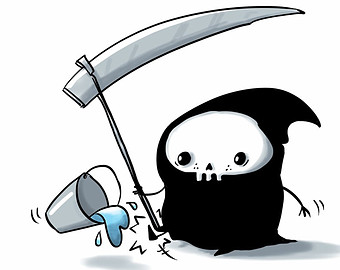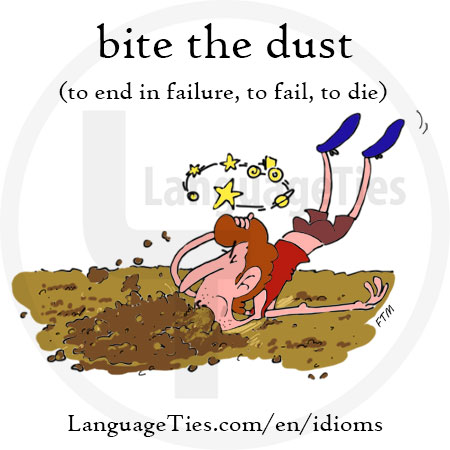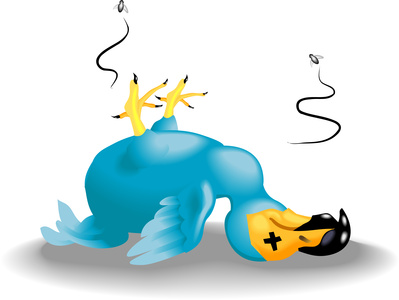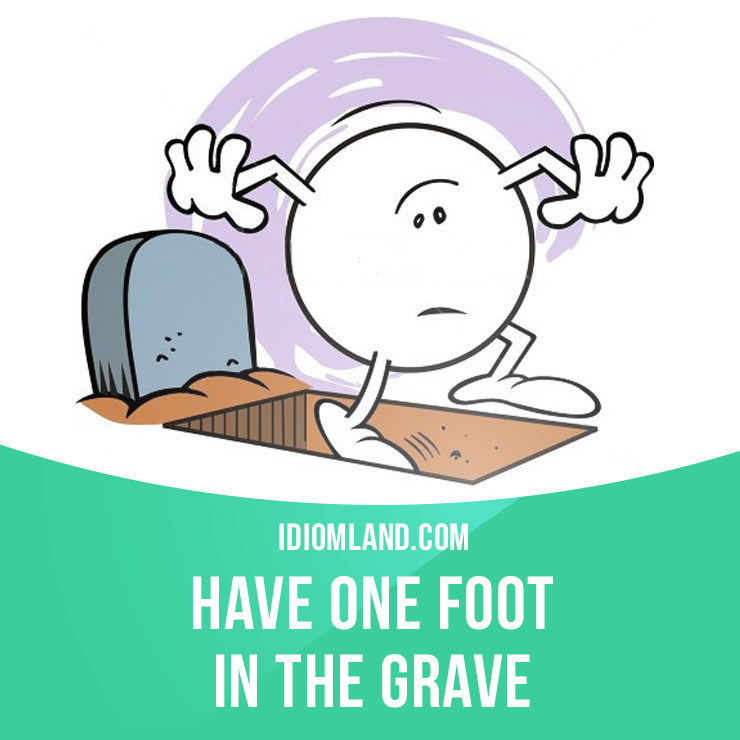Today, though, my entry is not gonna be Christmasy at all. Instead, now that the year is close to finish I'll be sharing with you some expressions related to the end in English:
1. To be over: When something is over, it means is completely finished. Who hasn't seen the expression "Game over" as a child, probably the most hated expression when you were having fun, he he he. If you are one of the unlucky ones, you may have heard the words "it's over" from your couple, hopefully not! From this, there are two interesting idioms that people use to cast some hope: "it ain't over till it's over", meaning that we must not give for granted the ending of something until it is completely finished. Likewise, the similar expression: "it ain't over till the fat lady sings" is used with the same meaning. The idiom makes reference to the opera and to the cliché that sopranos are a bit overweight.
| From: https://blingee.com/blingee/view/97320609-IT-S-NOT-OVER-TILL-THE-FAT-LADY-SINGS-TOP-6 |
2. To come to an end: As the title of this post preaches, the expression "come to an end" indicates that something is on the verge of finishing. From this, there's an idiom: "all good things must come to an end" meaning that most things (even good things) are temporary and won't last forever.
 |
| From: https://twitter.com/KnownProverbs/status/1021646793149374464/photo/1 |
3. The end of the line / the end of the road: The very end of something; the final step of a process or person; the point beyond which survival or continuation seems impossible. If you say this is the end of the road for a company, it means, it will probably go bankrupt and close down very soon.
 |
| From: http://sgst.com.au/2015/06/end-of-the-road-2/ |
5. Fight / defend something to the bitter end: When you know that something is going to end poorly, but, in spite of that, you fight hard to prevent it form happening, no matter what.
6. Bring something to a close / wrap something up: If you bring something to a close, or wrap something up, it means you finish it, i.e. you can bring a meeting to a close or wrap it up. In informal English, you can wind something up.
7. Verbs related to the end: 'Finish' and 'end' are two verbs used in everyday English. However, there's a formal counterpart: 'terminate.' In London buses, you can hear the verb 'terminate' to indicate the final stop of the line.
8. End up: This verb is used when something finishes unexpectedly. It is normally followed by a verb in -ing. Even though I studied hard and the exam went well, I ended up failing! The same meaning can be expressed by means of 'wind up'.
9. Finish off: In informal English, this verb is used to indicate that something is completely finished: you can finish off an assignment for school, or, in more serious terms, you can finish someone off (if you are a hitman).
10. Tie up loose ends / add the finishing touches to something: These two expressions are used to indicate that something is incomplete and with some final effort, you perfect it. The first one has been traditionally used in crime. You tie up loose ends when you make sure that no one can get to know that you committed a crime. The second expression, however, is way more optimistic. Conscientious people usually add the finishing touches to something to make it perfect.
Well, the end of my post is nigh, my friends. To finish it off , here you have two widely-known songs related to the end. I hope you like them. See you around.








